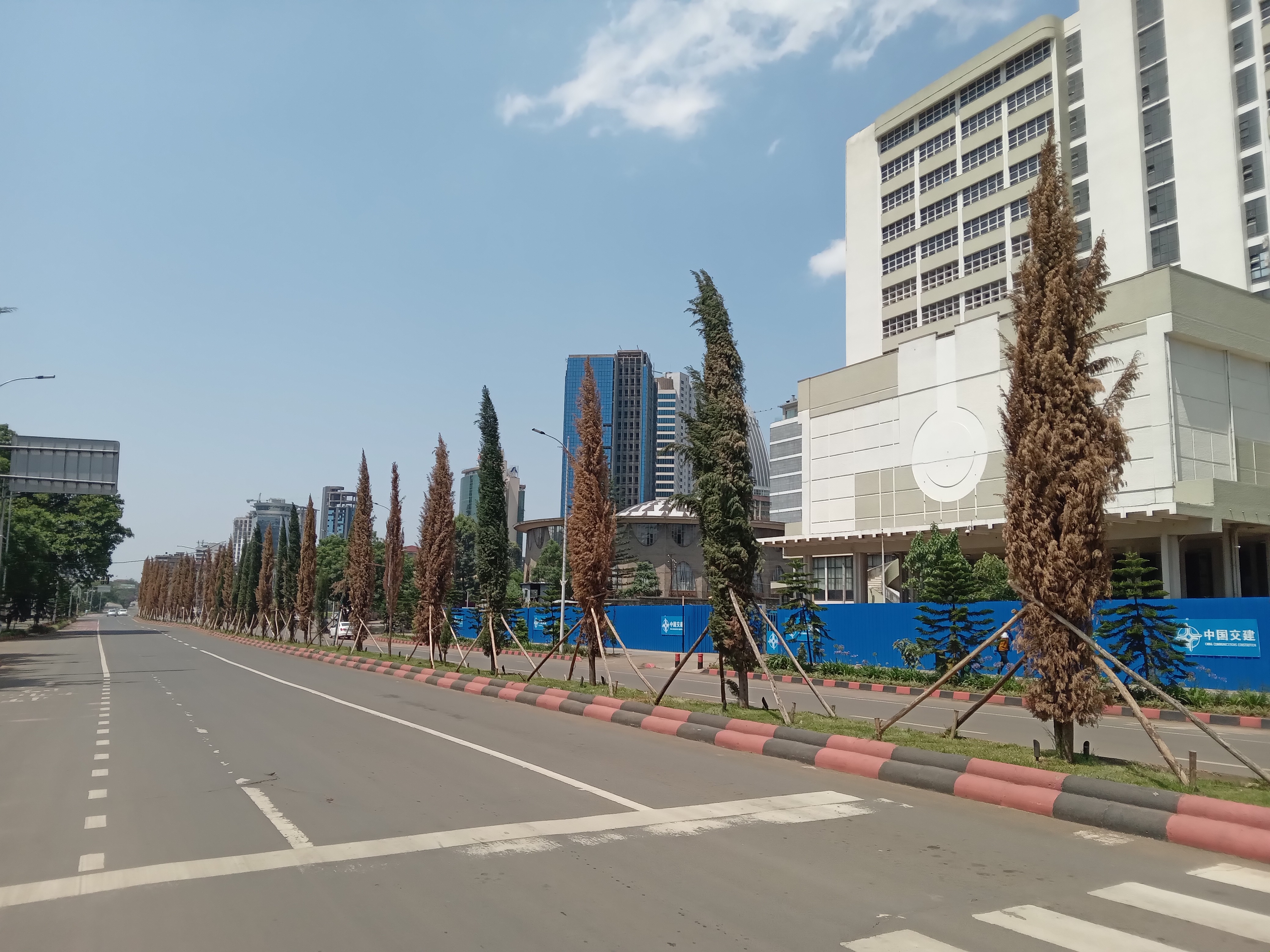
Viewpoints | Jul 12,2025
A chorus of complaints from business leaders is growing louder, as a web of macroeconomic pressures, security challenges, and policy bottlenecks continue to cripple operations.
At a recent meeting, industry representatives outlined a laundry list of grievances, ranging from power disruptions and excessive taxation to security threats and outdated laws. Abebayehu Girma, a board member of the Ethiopian Chamber of Commerce & Sectoral Associations, highlighted the particularly damaging impact of power outages, which can cause significant production losses.
"We've requested compensation for losses due to power outages, but our requests have been denied," Abebayehu said.
Security concerns were another major point of contention. Investors have been paralysed by fear, making it nearly impossible to transport goods outside city limits. "Our efforts are being derailed by security issues," said Abebayehu.
Property tax has long been a thorn in the side of Addis Abeba businesses. Despite numerous appeals, no changes have been made. Abebayehu revealed that a recent crackdown by the city's Revenue Bureau resulted in the closure of 200 businesses.
"We're not asking for exemptions, but for manufacturers to be treated differently from commercial and residential properties," he argued, warning that inflated property taxes could force businesses to close.
During a meeting with Deputy Prime Minister Temesgen Tiruneh and Minister of Trade & Regional Integration Kassahun Goffe, business leaders also raised concerns about logistics challenges in regional areas, such as the deteriorating AdamaGalafi road.
Other issues included the flourishing contraband trade, poor road conditions along the Djibouti trade route, and inconsistencies between tax laws in regional states and customs regulations.
In response to these concerns, the Deputy Prime Minister Temesgen Tiruneh acknowledged the challenges facing the country but expressed optimism about the future. He emphasised the importance of ensuring peace and security, strengthening the private sector, and addressing macroeconomic imbalances.
Meanwhile, the Ministry of Trade & Regional Integration (MoTRI) celebrated it s top expor ters, announcing 3.8 billion dollars in export revenues for the last fiscal year. Three exporters—Abdulhakim Mohammed Geleto, Sher Ethiopia, and Tracon Trading—were recognized for their contributions to the country's export earnings.
Minister Kassahun Goffe highlighted the government's efforts to address currency shortages, promote economic growth, and create a more transparent foreign exchange market. He expressed optimism about the future of the Ethiopian economy, driven by strong investments and export growth.
However, not all exporters are singing the same tune. Edao Abdi, a veteran exporter, voiced frustration over the policy challenges plaguing the sector, including the mismatch between domestic and international prices and the difficulty of securing financing.
"Exporters are struggling to secure loans without collateral," Edao said, adding that falling global prices, particularly in the oilseeds market, have exacerbated the situation.
Edao, who manages Edao Trading and sources pulses through the Ethiopian Commodity Exchange (ECX) and direct contracts with farmers in Oromia and Sidama regions, has been waiting for a decision on a 500 million Br loan request from private banks for the past three months. He expressed hope that the upcoming vertical integration directive for oilseeds and pulses could address price and accessibility issues, similar to what was done in the coffee sector, which has seen record export numbers.
Coffee exports reached an all-time high of 1.43 billion dollars last year, yet financing remains a bottleneck for growth.
Businesses Struggle Under Weight of Economic Burdens The sector’s financing woes were also echoed by Gizat Worqu, general manager of the Ethiopian Coffee Association. He acknowledged that the currency float has been a step in the right direction for exporters but pointed out the persistent challenge of securing financing. According to Gizat, exporters are often forced to sell at a loss due to the disparity between domestic and international prices, despite the benefits of the reform. Experts warn that Ethiopia’s trade sector could remain stagnant without decisive action.
Economist Arega Shumete (PhD) attributed the sector’s fragility to a lack of coordinated efforts to boost productivity. He warned that without substantial reforms, domestic markets could become more attractive than international markets, which are vulnerable to price fluctuations. Arega also pointed to non-price-elastic export commodities as essential for creating sustainable revenues.
"International markets still dictate prices," he said. "And domestic challenges like utility shortages, corruption, and poor governance remain the main threats."
PUBLISHED ON
Sep 09,2024 [ VOL
25 , NO
1271]

Viewpoints | Jul 12,2025

Fortune News | Jan 01,2023

Commentaries | Mar 01,2024

Radar | Jan 27,2024

Fortune News | Aug 17,2025

Radar | Oct 27,2024

In-Picture | May 12,2024

Fortune News | Mar 30,2024

Fortune News | Nov 24,2024

Commentaries | Jan 31,2021

Dec 22 , 2024 . By TIZITA SHEWAFERAW
Charged with transforming colossal state-owned enterprises into modern and competitiv...

Aug 18 , 2024 . By AKSAH ITALO
Although predictable Yonas Zerihun's job in the ride-hailing service is not immune to...

Jul 28 , 2024 . By TIZITA SHEWAFERAW
Unhabitual, perhaps too many, Samuel Gebreyohannes, 38, used to occasionally enjoy a couple of beers at breakfast. However, he recently swit...

Jul 13 , 2024 . By AKSAH ITALO
Investors who rely on tractors, trucks, and field vehicles for commuting, transporting commodities, and f...

Oct 25 , 2025
The regulatory machinery is on overdrive. In only two years, no fewer than 35 new pro...

Oct 18 , 2025
The political establishment, notably the ruling party and its top brass, has become p...

Oct 11 , 2025
Ladislas Farago, a roving Associated Press (AP) correspondent, arrived in Ethiopia in...

Oct 4 , 2025
Eyob Tekalegn (PhD) had been in the Governor's chair for only weeks when, on Septembe...